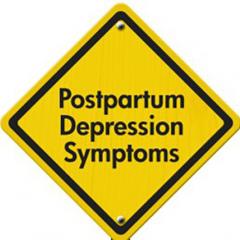Deep brain stimulation for depression hits a(nother) roadblock
 A recent study has found that deep brain stimulation (DBS) to relieve treatment-resistant depression is ineffective. DBS has been previously cited as a potential future therapy for depression, noting that more evidence was needed in the form of rigorously controlled clinical trials. Unfortunately, a placebo-controlled trial of DBS has now failed to replicate the results from an earlier “open-label” trial, in which participants knew whether they were receiving therapeutic DBS or “sham” DBS and which was therefore prone to placebo effects. The study in question used DBS to stimulate the ventral capsule/ventral striatum, regions involved in reward and motivation.
A recent study has found that deep brain stimulation (DBS) to relieve treatment-resistant depression is ineffective. DBS has been previously cited as a potential future therapy for depression, noting that more evidence was needed in the form of rigorously controlled clinical trials. Unfortunately, a placebo-controlled trial of DBS has now failed to replicate the results from an earlier “open-label” trial, in which participants knew whether they were receiving therapeutic DBS or “sham” DBS and which was therefore prone to placebo effects. The study in question used DBS to stimulate the ventral capsule/ventral striatum, regions involved in reward and motivation.
Despite the gloom, particularly following the cessation of another depression DBS trial last year, the result does not—and should not—spell the end for investigating whether DBS has merit for depression treatment. Stimulation of different targets, or the same target with different stimulation parameters, may yet prove helpful.
In the longer term, improving DBS technology so that it doesn’t just blindly stimulate neurons with fixed intensity and frequency, and instead adapts to the ongoing activity of the brain, is likely to prove extremely useful, although it will be challenging to implement (this is so-called “closed-loop” neurostimulation, a sort of holy grail in the field). Moreover, the reality is that we don’t actually know how DBS works, even in conditions such as Parkinson’s Disease and Obsessive Compulsive Disorder for which it is therapeutically proven. As clinicians fumble in the dark with blunt instruments, is a failed trial really that surprising? It’s disheartening, yes, but less so in light of what we don’t know.
Based on the potential for improvements in DBS technology, it certainly seems too early to even contemplate giving up on DBS for treatment-resistant depression, a thought reinforced by researchers both involved and uninvolved in the trial (the link is to an informative opinion piece, which may not be publicly accessible).
What these failed trials do demonstrate, however, is that it’s important to have scepticism for clinical trials that are not well-controlled, such as in an open-label design. Furthermore, expecting salvation from technologies that we simply don’t understand properly can easily lead to disappointment. So as always, it’s a time for healthy scepticism and more research…this is science.



